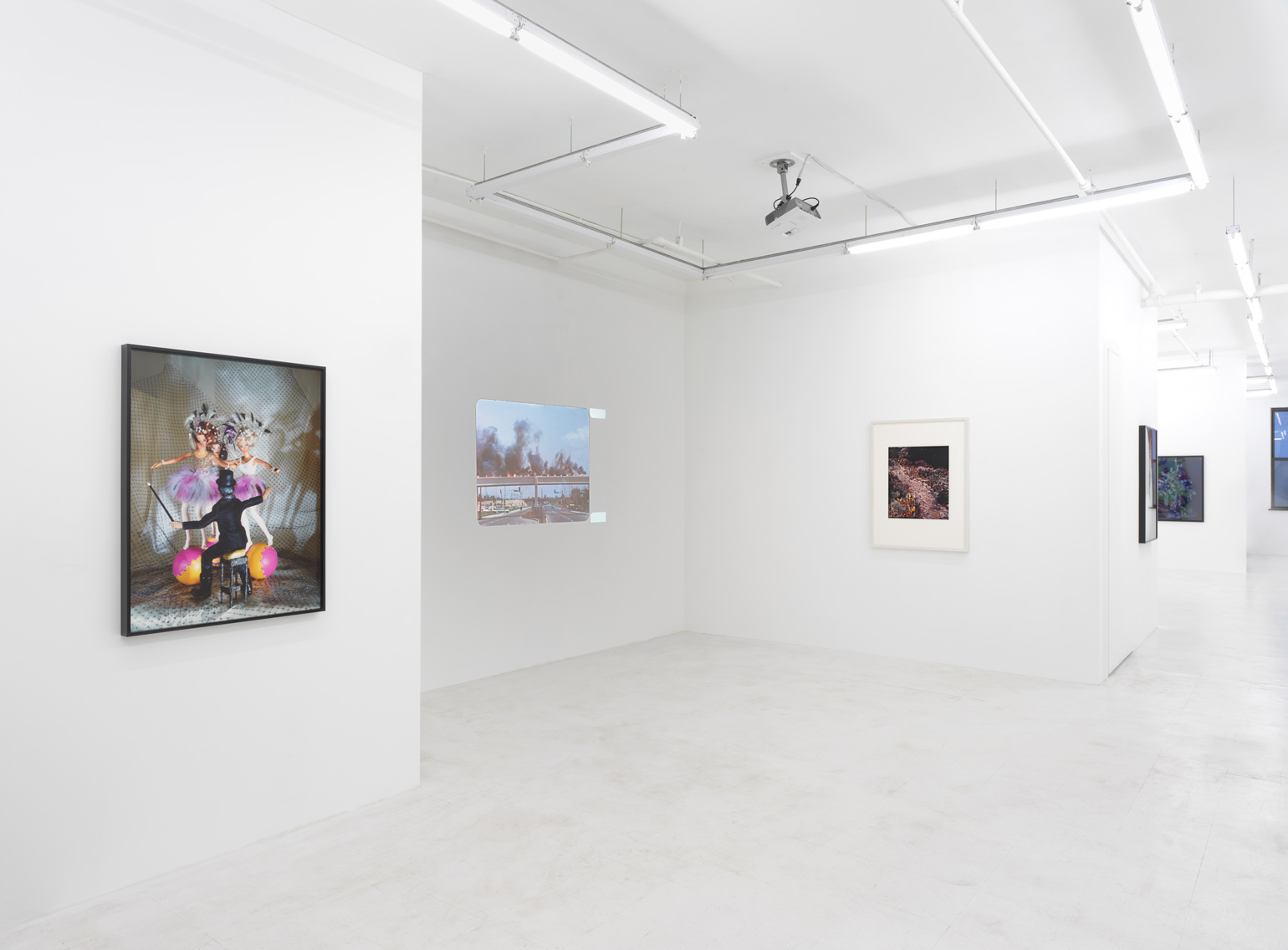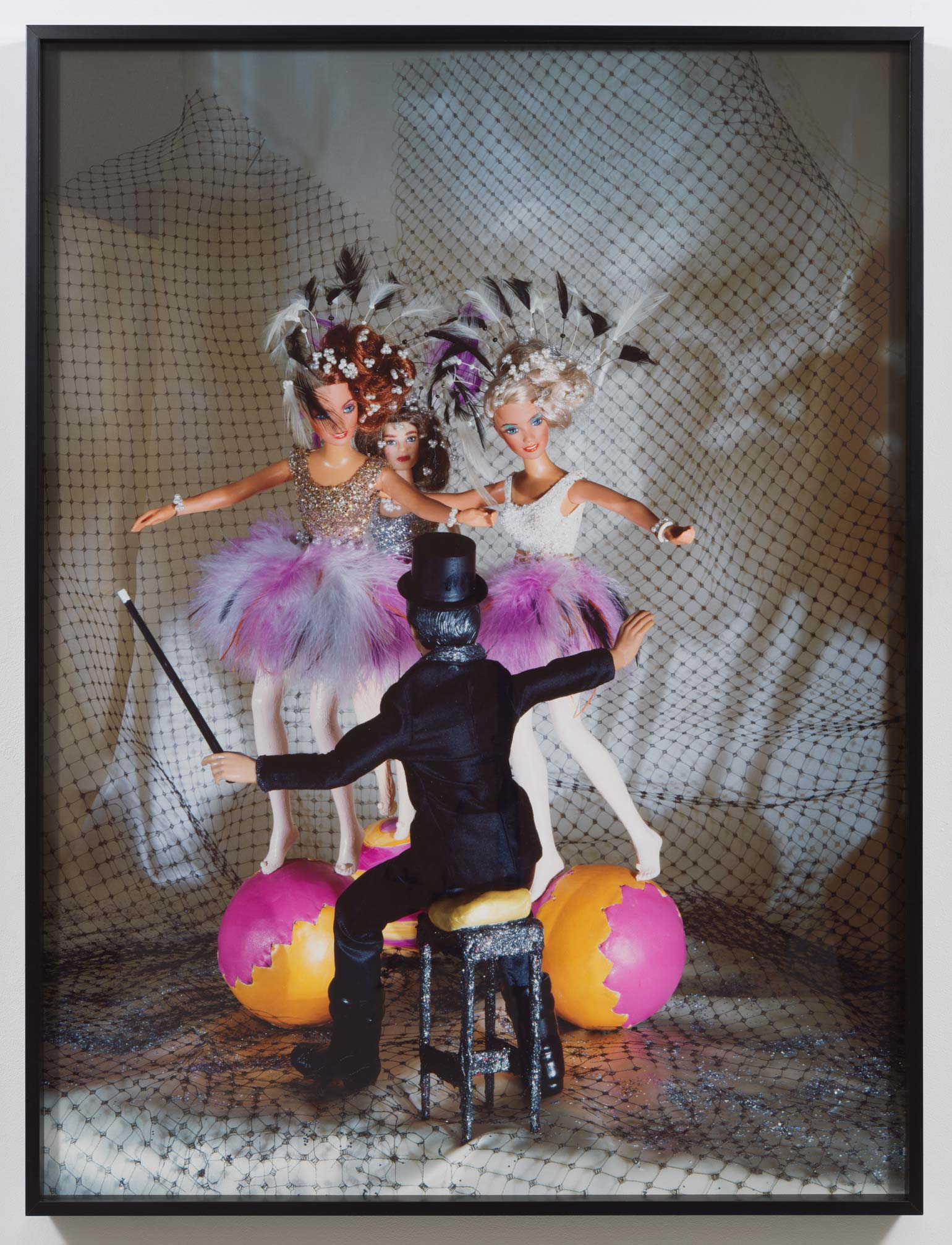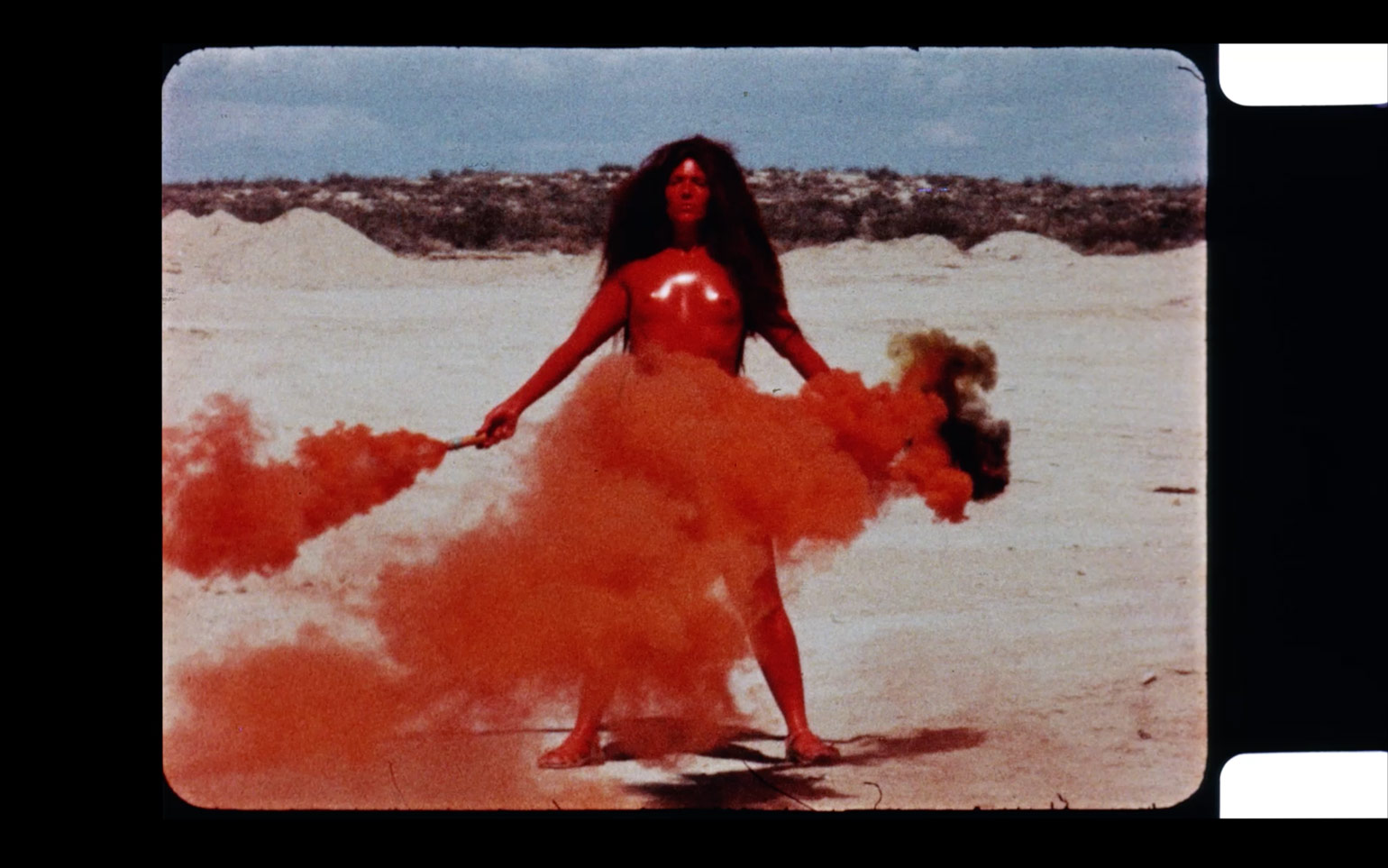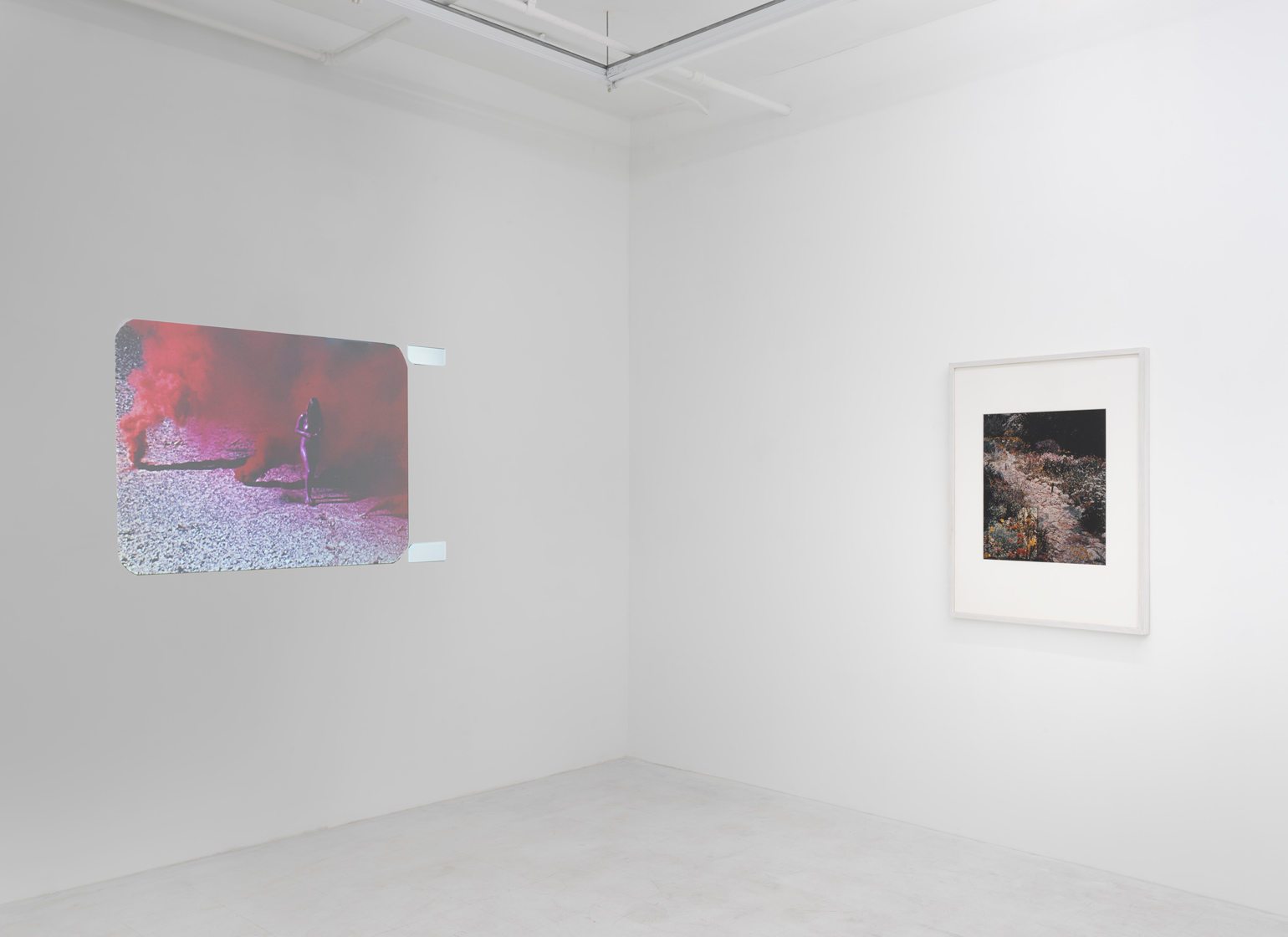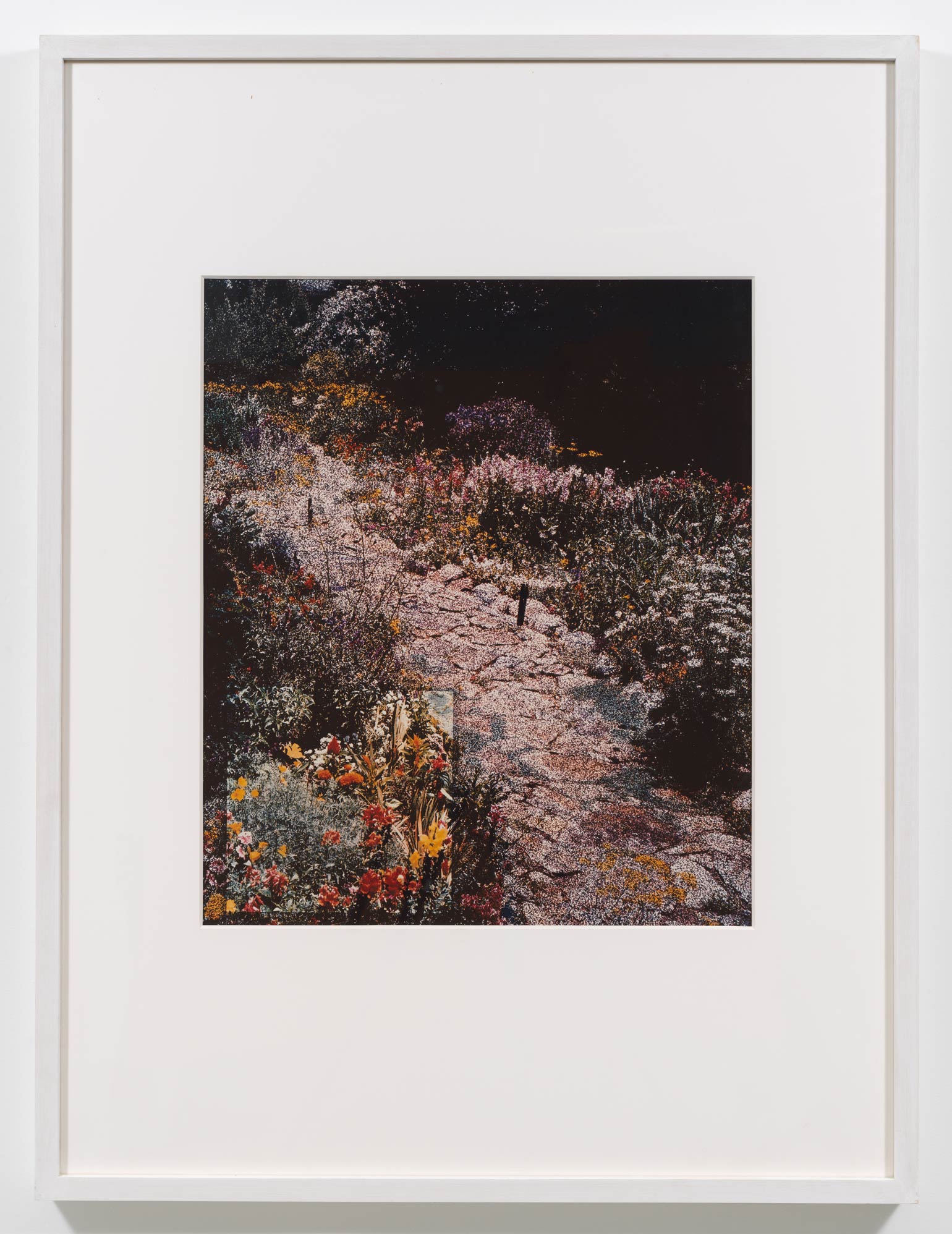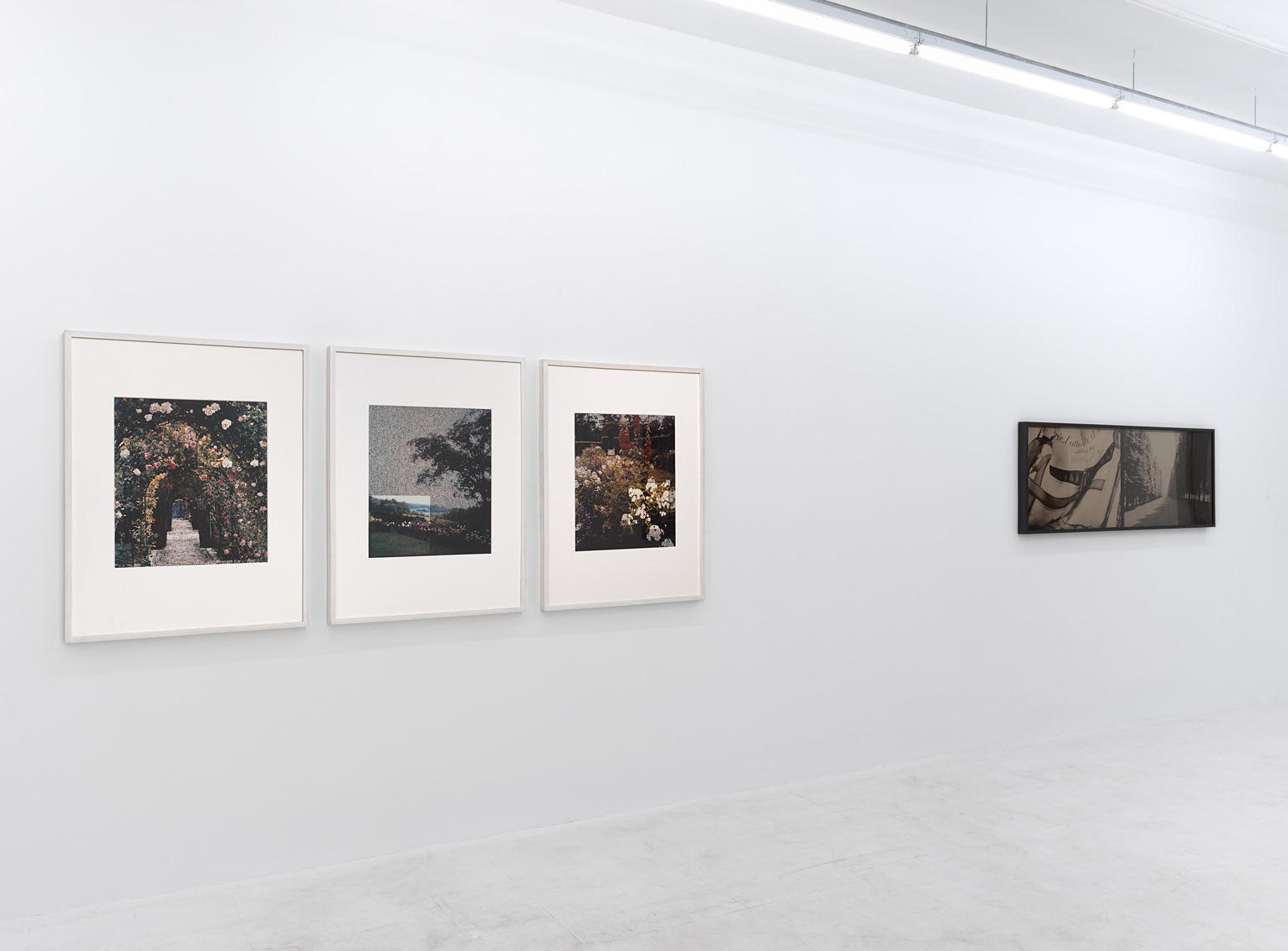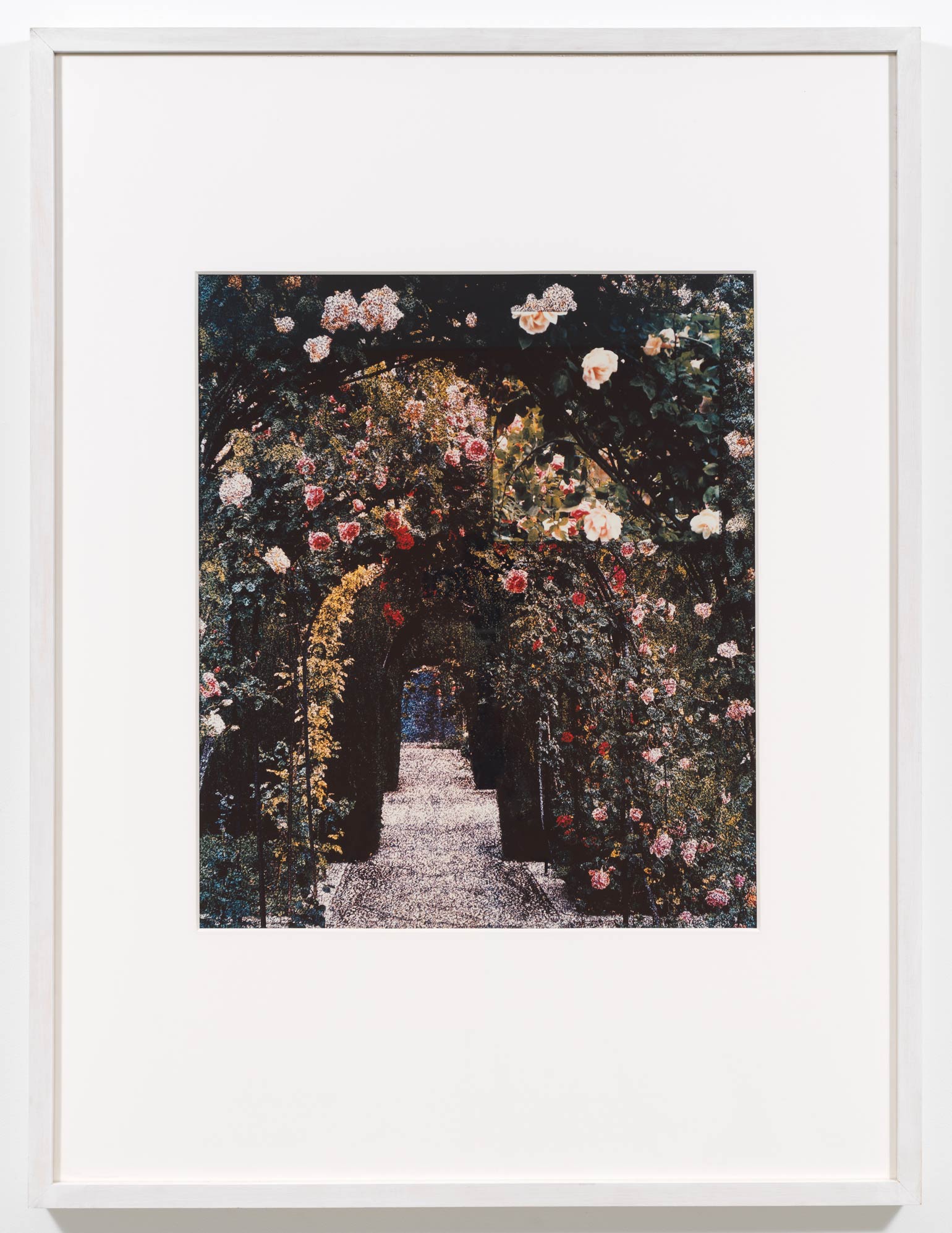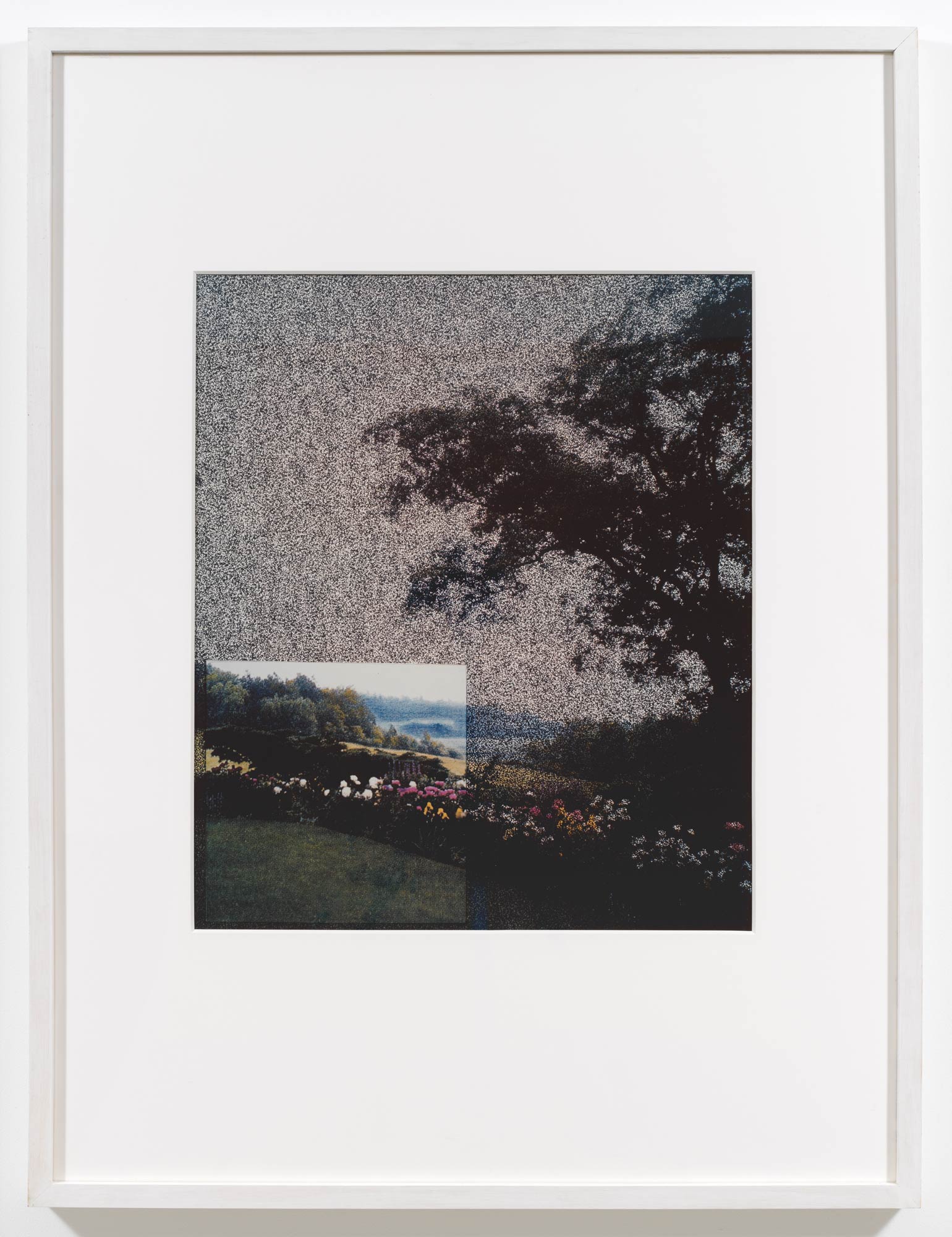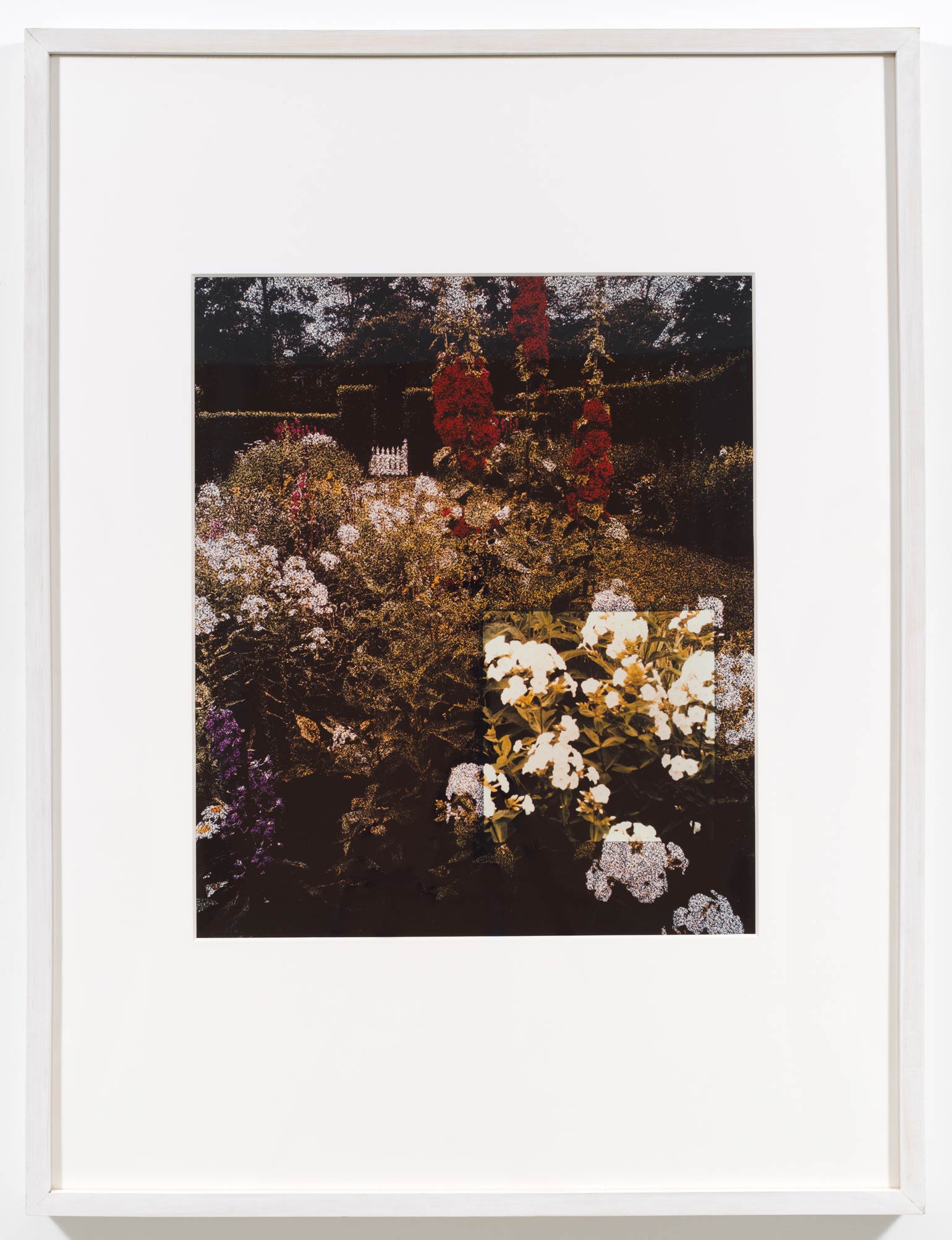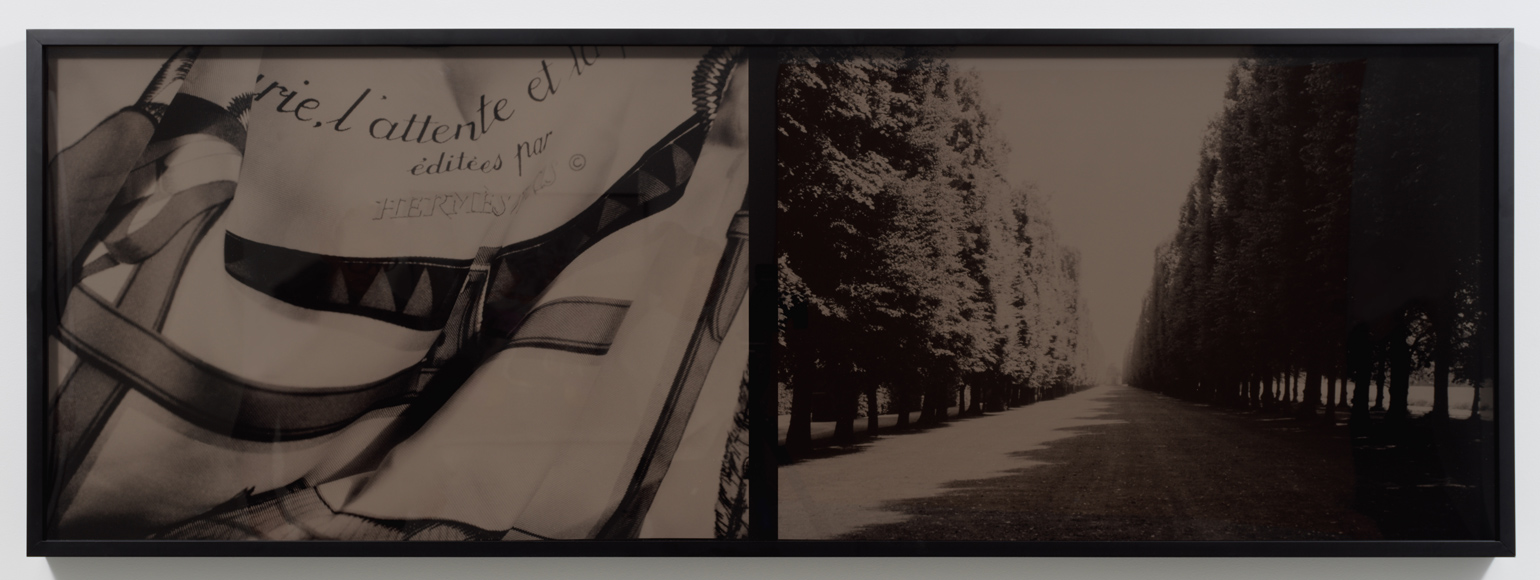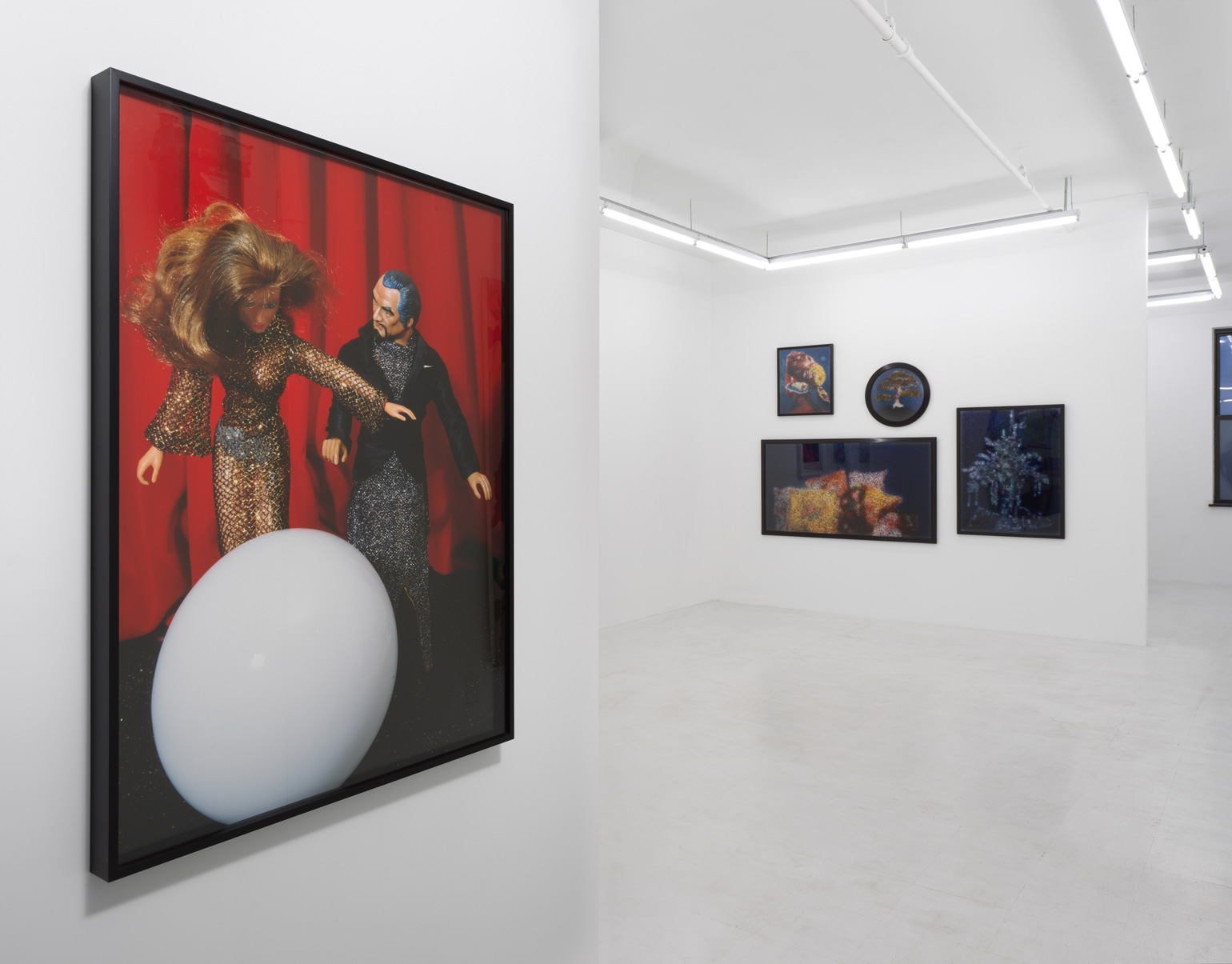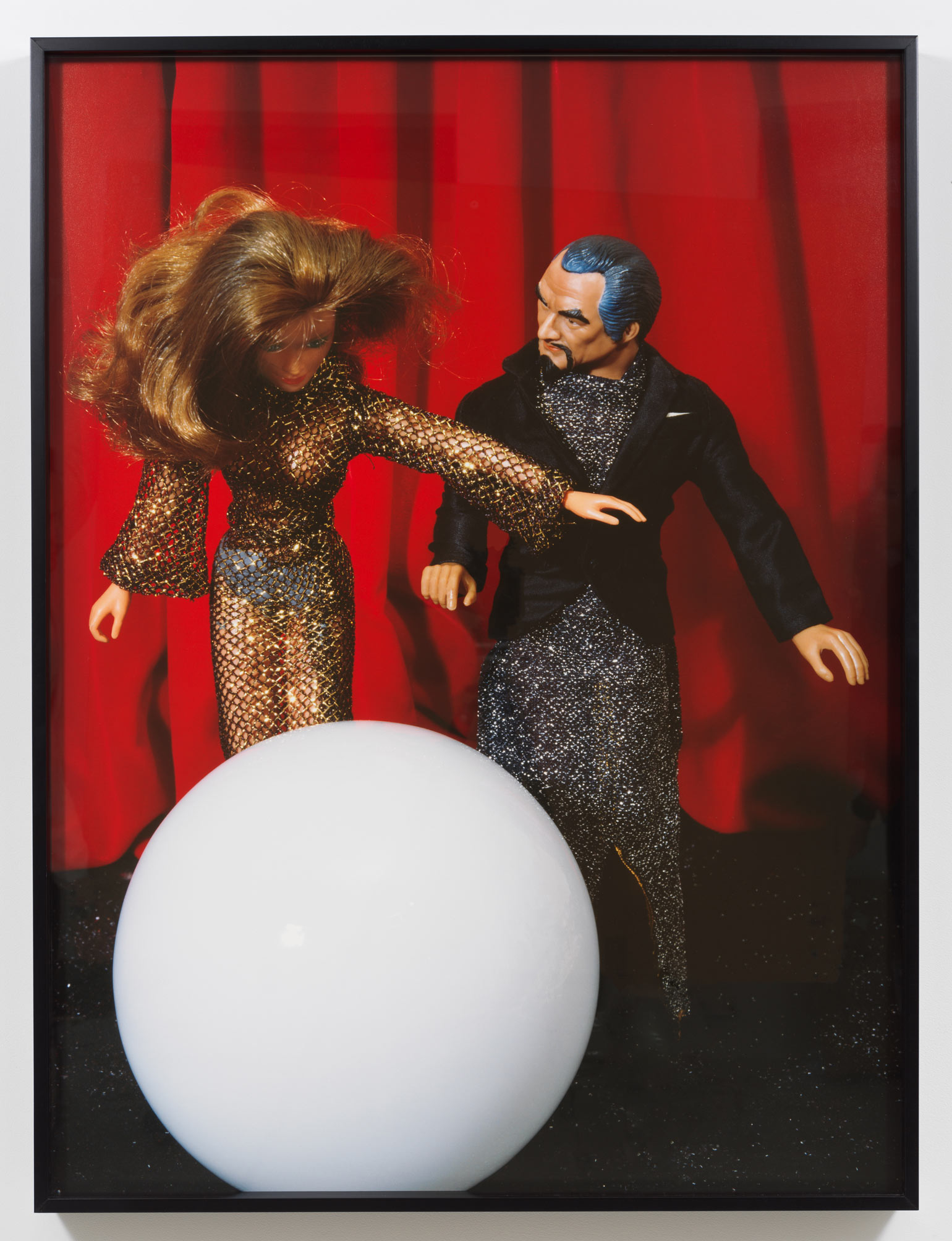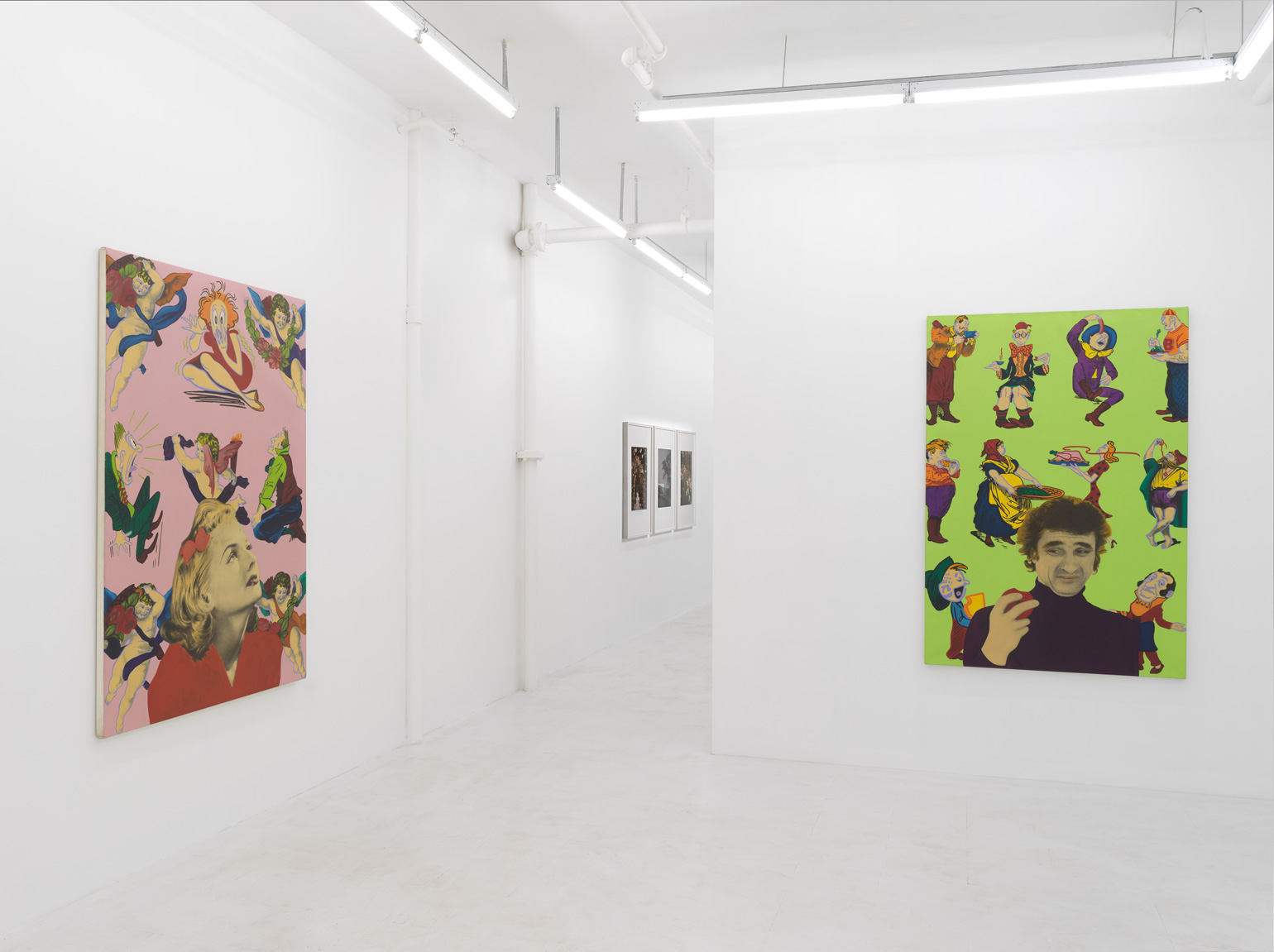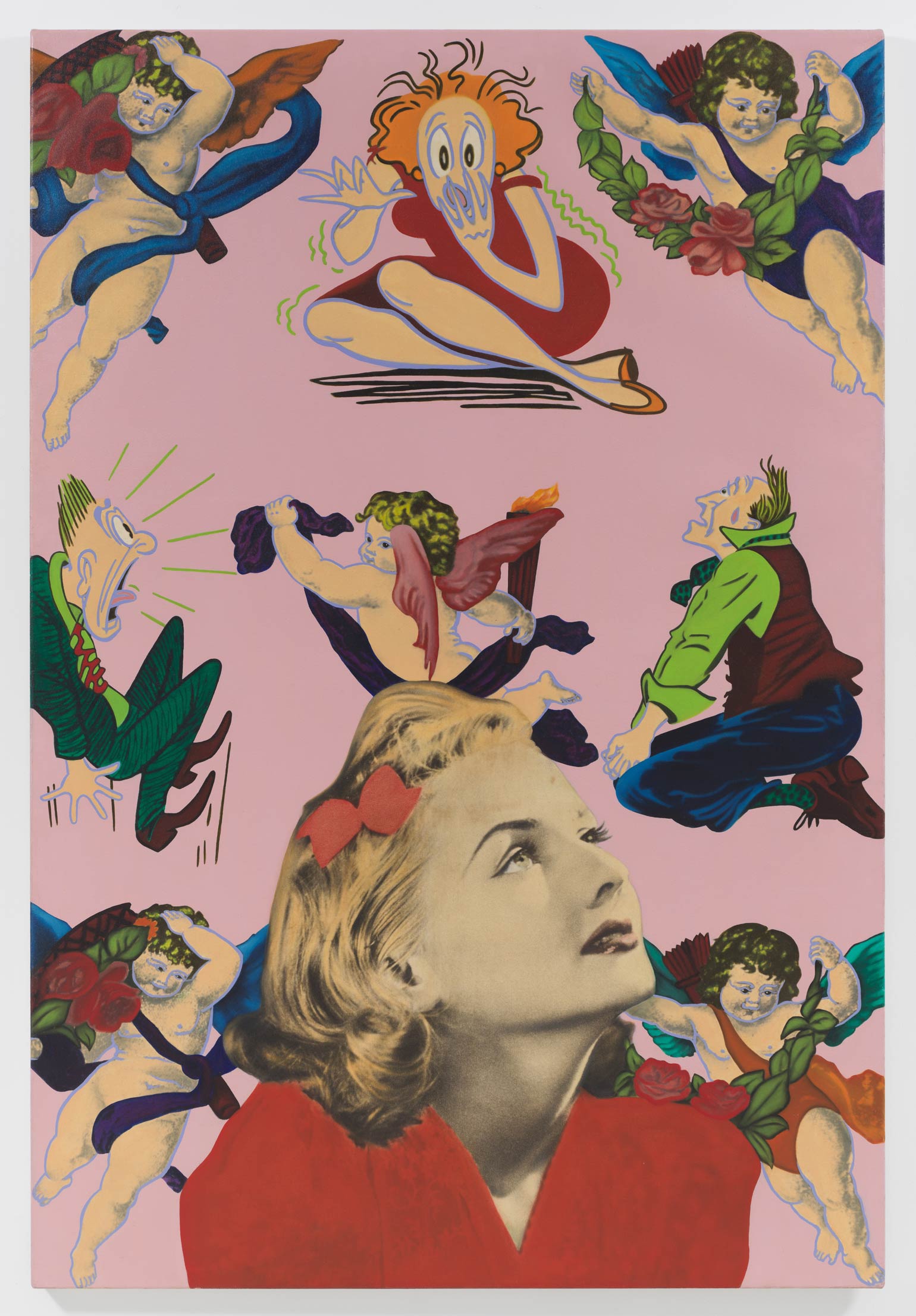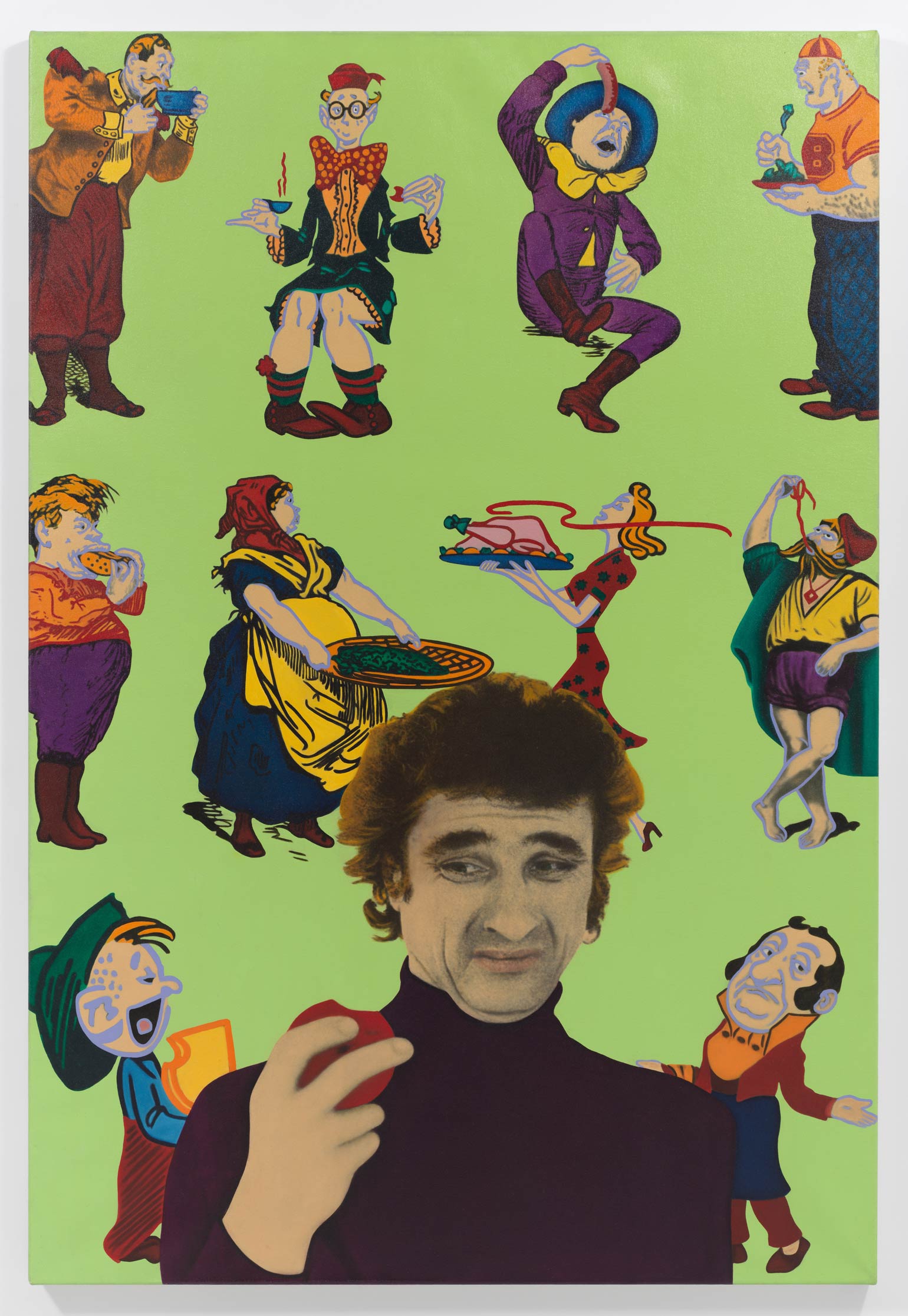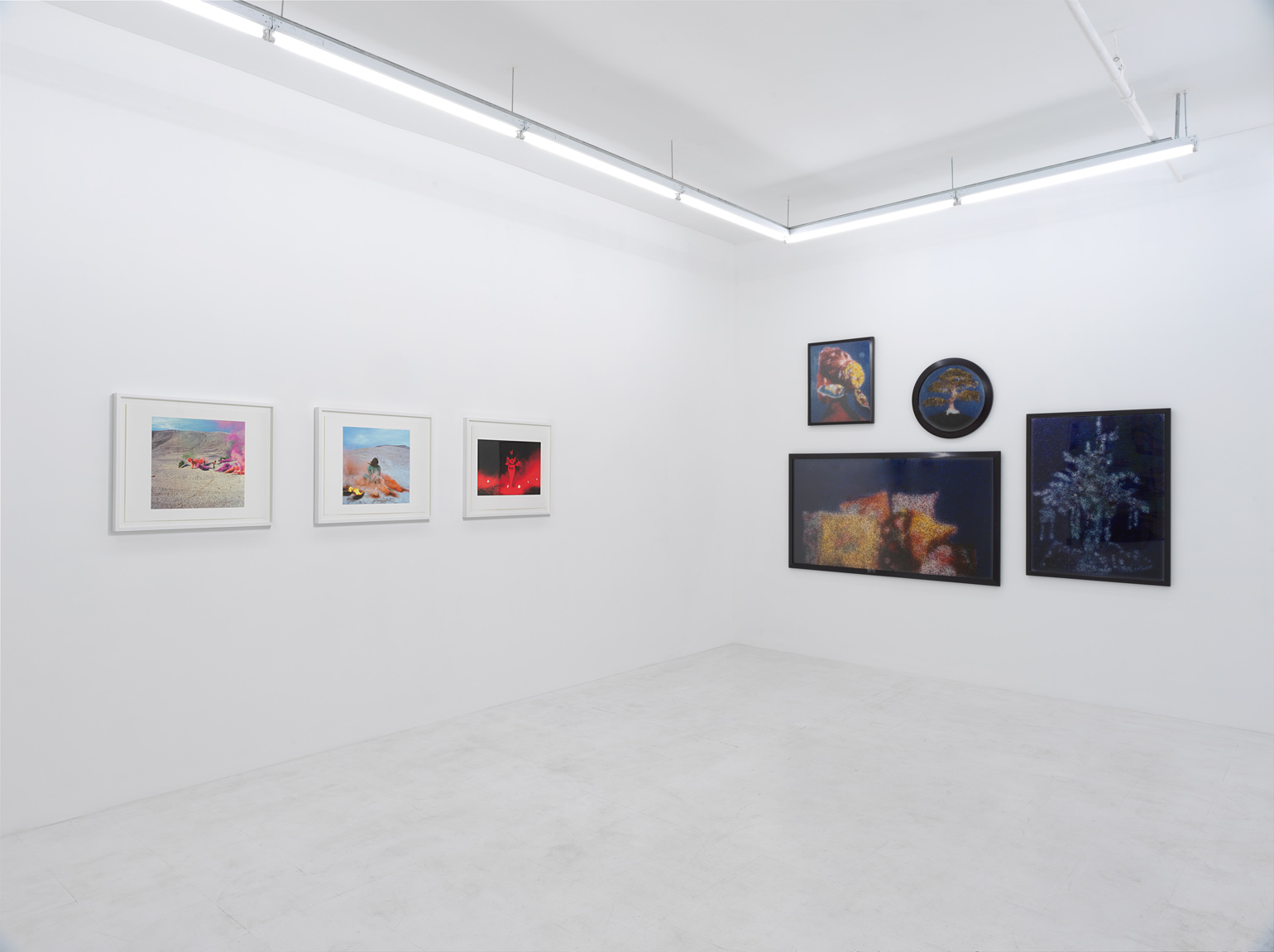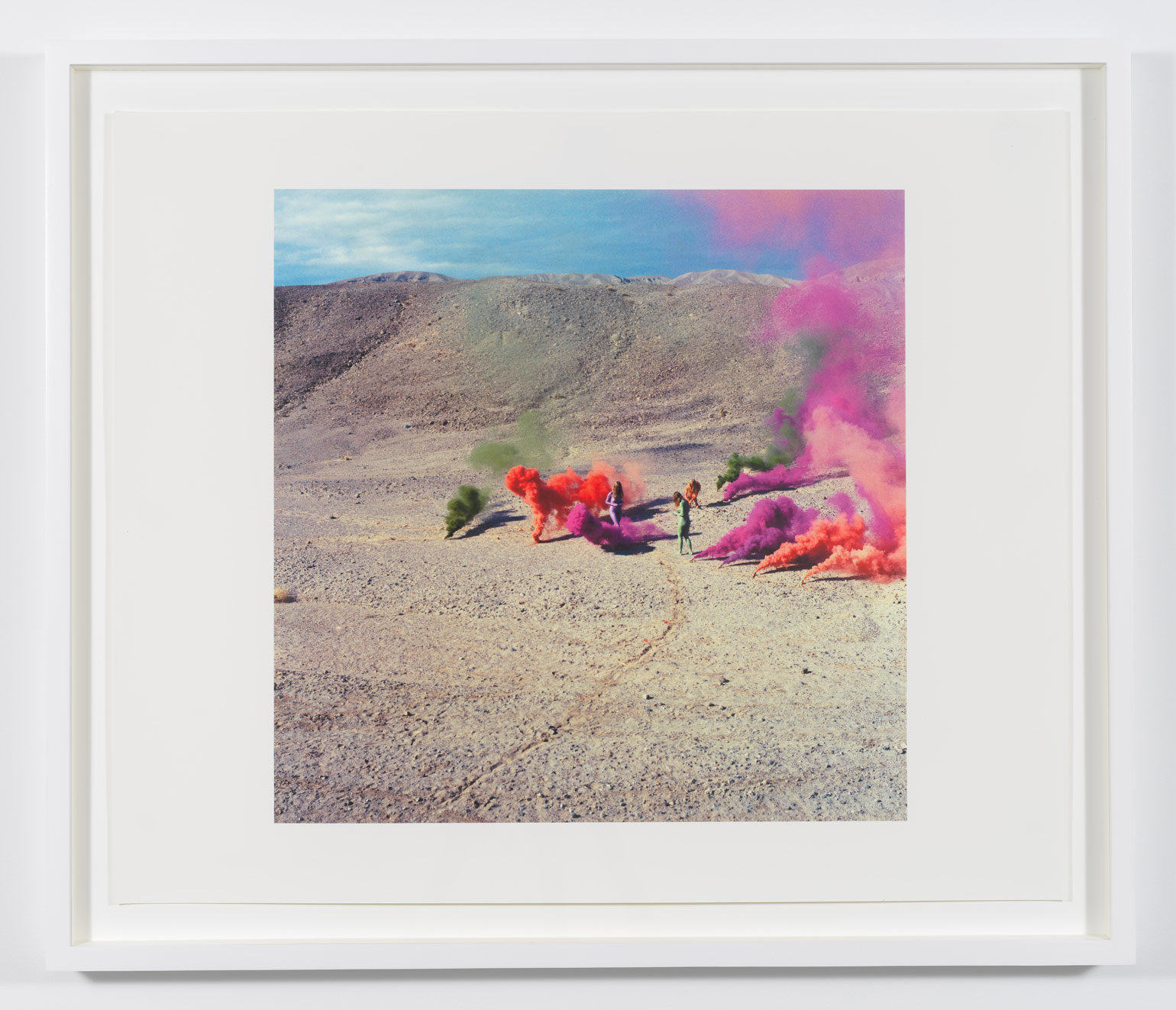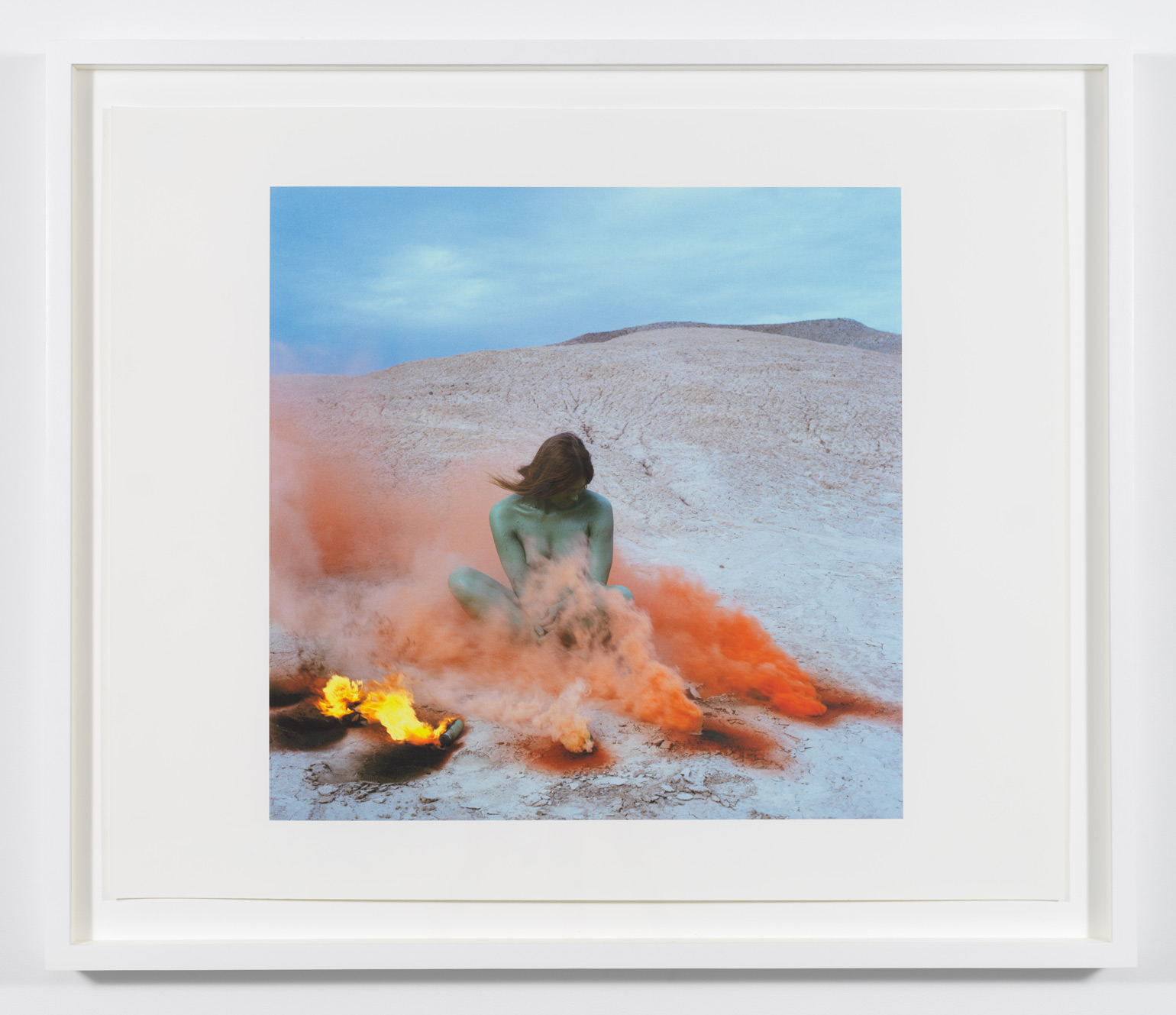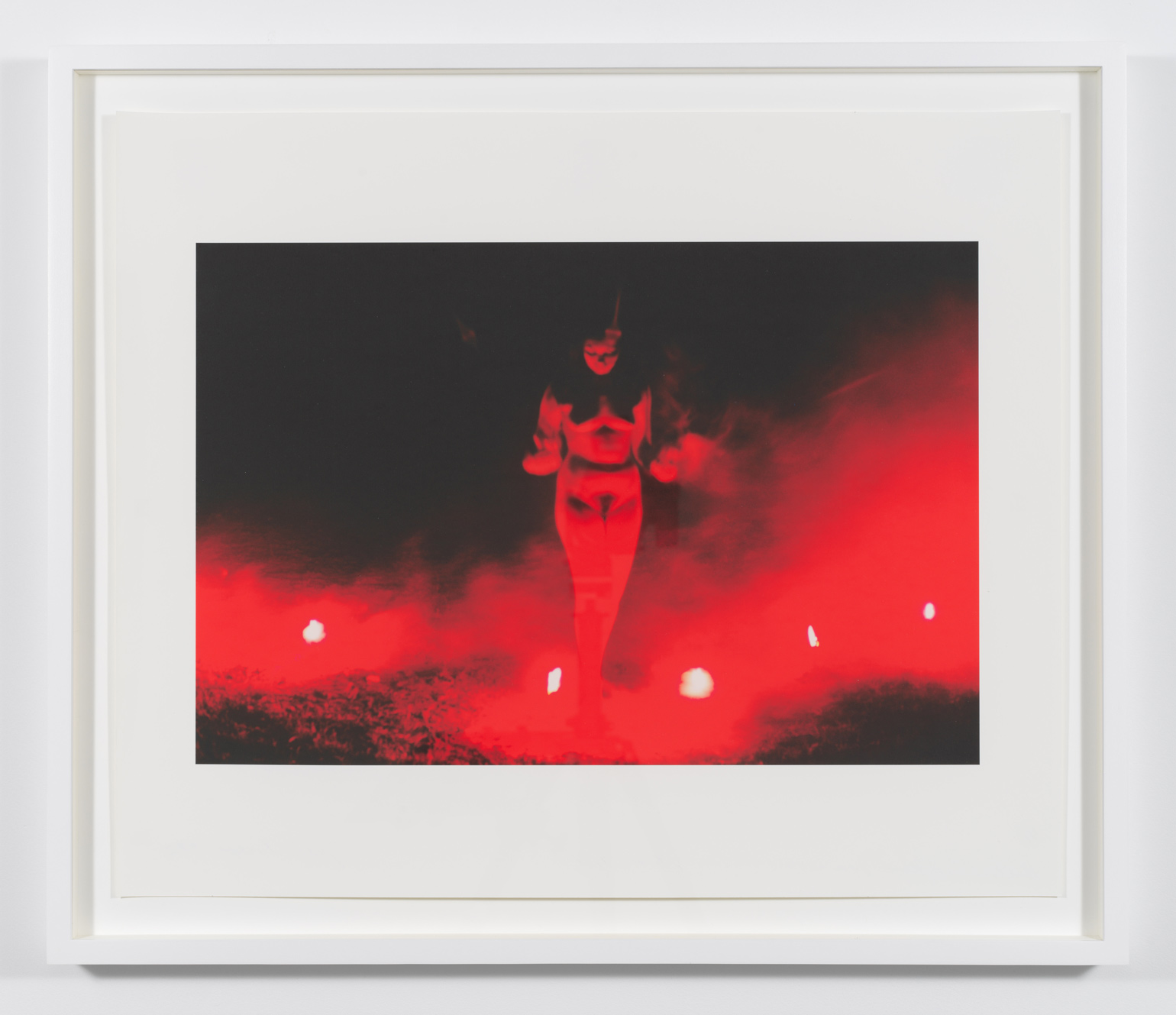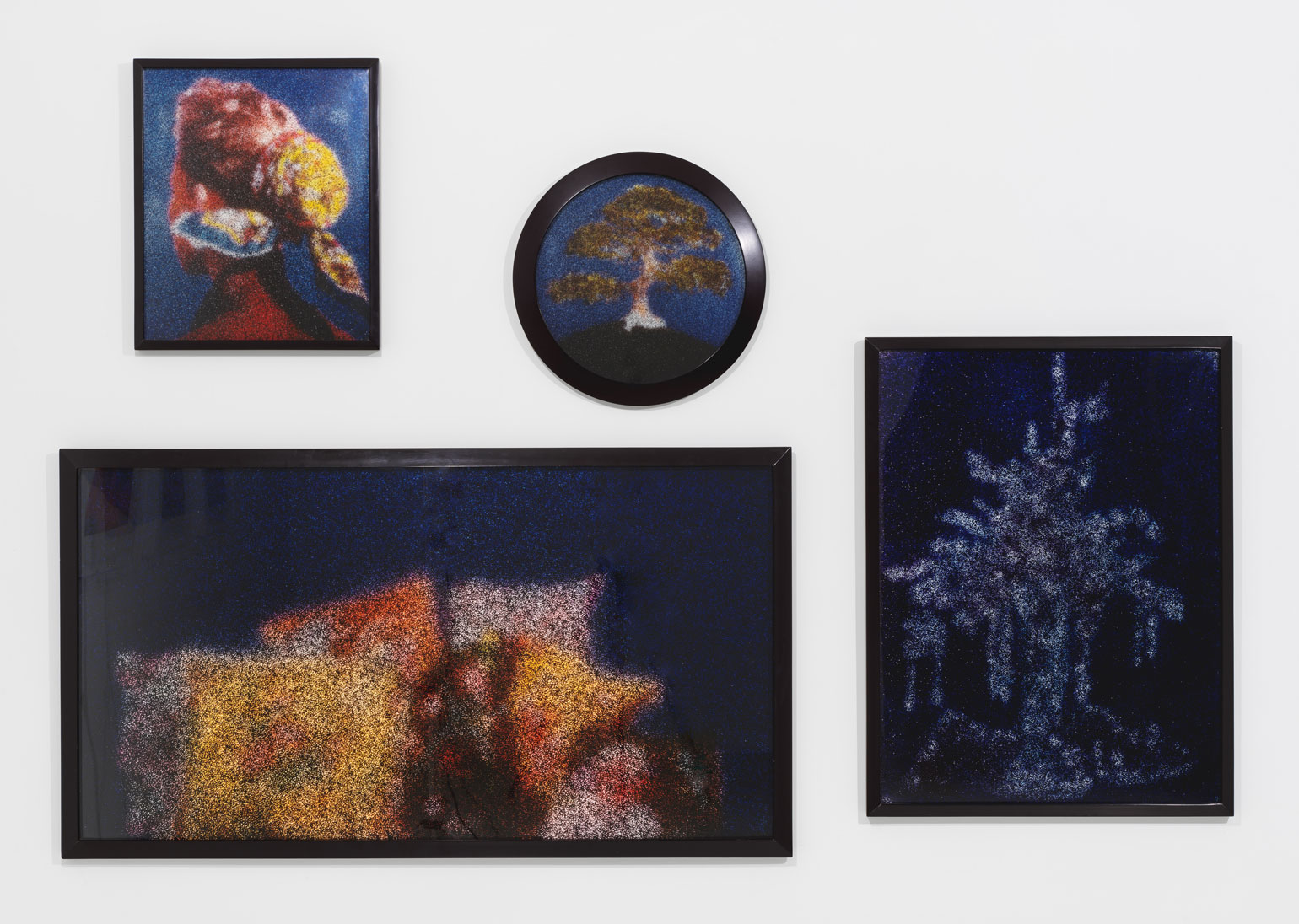Constellating key works by Vikky Alexander, Ellen Brooks, Judy Chicago, and Karen Sylvester, this exhibition coordinates a historical survey addressing the consumption, surveillance, and circulation of femininity. While attuned to the artists’ specific allocations and dislocations of site and medium, Guarded Future foregrounds feminized remediations of photography, painting, and performance, cumulatively evidencing these mediums’ potentials for transmitting alternative terms of self-constitution, spatial determination, and connectivity. The exhibition derives its title from a 1982 Cibachrome photograph by Ellen Brooks depicting an insurrectionary, de-personalized, and counter-performative moment of objection.
Antipathetic to then-concurrent mass-media representations of typal landscapes and disenfranchised domesticity, the works on view accelerated historical change from a point of codified vitiations of gender parity. Embedded in the exhibition, the effects of the physical attributes of place and its absence emerges dually through visceral stagings and ironizing appropriations – agitating, through feminized interventions into natural and constructed landscapes, a tenacious objection to threadbare delimitations of women’s experience and its communal reproduction.
In works spanning 1971-90, both preceding and complicating current metabolizations of online and selfie feminism within existing hierarchies, the exhibition hybridizes uses of the analog female image in and out of nature – needling polarities between personal index and social intervention, material emanation and captured image, physicalized void and technological aperture. Throughout, a conception of analog documentation as a binary system forwards discourse around relations of difference.
Emphasizing the physical materiality of images in space through techniques of fragmentation, superimposition and augmented reflectivity, Vikky Alexander’s formative contributions to Pictures era strategies of appropriation underscore the mediated nature of documented experience as well as the contingencies and complicities inherent in the process of viewing. Recognized for her images of romanticized nature and naturalized romance addressing the synthesis of female and natural ideals through public sources, Hermes/Herrenhausen (1985/2017) comprises her first composition to incorporate two original photographs of luxury and landscape: a gifted Hermes scarf and the formal garden of the palace at Herrenhausen in Hannover, Germany. Elliptically diaristic, the work exploits the distance between explicit forms of commercial representation and a guarded cipher of familial experience.
Rejecting assertions of dominance implicit within artificiated access to the personal history of portrait subjects, Ellen Brooks’ Tableaux series, consisting of ektacolor and cibachrome prints created between 1978-1985, manipulated dolls in mundane scenarios to establish generic types that would obviate tendencies towards psychologized reading. In Guarded Future (1982)and Revolvers (1983), she activates conditioned responses to pose, gesture, expression, and setting to imply open-ended narratives regarding the problematics of codified gendered relations as ventriloquized within and beyond photographic representation.
While her tableaux question the veracity of portraiture, Brooks has experimented with additional modes of intervention that foreground entanglements between the photographic image and material world. In a process beginning in 1986, and in evidence within the constellation of framed cibachrome prints comprising the multi-partite work Blue Container (1987), she would re-photograph magazine and theme calendar imagery painted over and imaged through a black screen, anticipating methods of digital filters and layering. In a selective logic focused on images complicit in cultural appropriation and contrived nature, Brooks’ self-reflexive critique of photographic repackaging, an apparatus dually seen and seen-through, is communicated through a formal language of crystalline composites of color, atmospheric visual fields, the vestigial tactility of analog procedures, and a patently inaccurate, generalized appearance.
The unique Polacolor prints, Hill and Dale (American Gardens #14), Pink Path (American Gardens #2), Rose Arbor (American Gardens #5), and White Phlox (American Gardens #9), were produced collaboratively by Vikky Alexander and Ellen Brooks at the invitation of the Polaroid Corporation’s film laboratory on Broadway in 1990. Emblematic of the artists’ American Gardens series, the works combine the artists’ modes of re-photography, spatial inquiry, and material intervention. Each print merges two separate 4×5 slide transparencies: (i) an appropriated image of an American garden and (ii) a painted dot-screen patterned mesh. Deciding where a seemingly arbitrary cut would be made in the latter, and thus interrupting its seemingly pointillist surface, a clearer zone emerges to replicate the pre-photographic formulation of focal points within a formal garden – historicizing aesthetic interventions into site as critiques of correlations between perspective and power. The inherent singularity of Polacolor prints spotlights the real-time role of spectatorial position in a phenomenological engagement with photographic materiality.
Countering the ubiquitous masculinist ethos of contemporaneous diesel-fueled Earth Art and hot-rodded West-Coast minimalism, Judy Chicago executed a series of site-specific performances involving increasingly complex activations of colored smoke with fireworks, dry ice, and flares – demilitarized technologies subverted by a pacific if also weaponized feminism – from 1968 to 1974. Entitled Atmospheres, these networks of timely, telluric actions intended to introduce a feminine impulse into the environment, liberate color into the air, and manifest women-centered actions such as the worship of goddess figures and the kindling of fire. Sustaining the history of these atmospheric interventions, her archival video Women and Smoke (1971-72) documents nine of her iconic early feminist performances, and is accompanied in the exhibition by three prints originating in this significant historical source: Goddess with Flares II, Immolation IV, and Smoke Bodies III (all works 1972).
First presented in the exhibition “Cady Noland, Sam Samore, Karen Sylvester,” curated by Thea Westreich, at Galerie Max Hetzler, Cologne (1990), two untitled 1990 paintings by Karen Sylvester unite photo emulsions and oil on canvas, working counter to the specificity of each medium. Rendered in oils, photographic imagery – annexed from the archives of the New York Public Library – shakes off tethers to objectivity; meanwhile, the expressive potential of painting is complicated by its conscription to mechanical reproduction. In an unwound celluloid ambience evoking theretofore unprecedented rates of image exchange, staccato bursts of action by appropriated cartoon figures bombard precariously displaced solo portraits. In these wry illustrations of female labor and hysteria amid male consumption, a sense of nerve-frayed anomie and synthetic placelessness coordinates feminist perspectives with post-medial positions.
